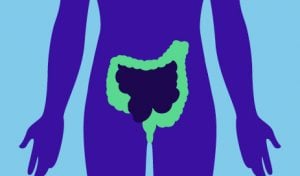Bowel cancer
 Bowel cancer is one of the most commonly diagnosed cancers in the UK. Find out all you need to know about bowel cancer.
Bowel cancer is one of the most commonly diagnosed cancers in the UK. Find out all you need to know about bowel cancer.
What is bowel cancer?
The bowel is part of our digestive system and it’s divided into two parts: the small bowel and the large bowel. Nearly all bowel cancers are found in the large bowel, which is made up of the colon and the rectum.
Most of the nutrients from the food we eat are absorbed in the small bowel. Food then passes into the colon where water and any remaining nutrients are absorbed, leaving behind solid waste products. These waste products then move through the colon and the rectum before leaving the body.
Bowel cancer starts when cells in the bowel lining are damaged and then grow uncontrollably, forming a tumour.
Other names for bowel cancer include rectal cancer and colon cancer. These names depend on where within the bowel the cancer first starts developing.
How common is bowel cancer?
In the UK, bowel cancer is the fourth most common cancer people are diagnosed with. Around 44,700 people are diagnosed with bowel cancer every year, with around 122 new cases diagnosed each day.
For women, bowel cancer is the third most common cancer diagnosis, with 1 in 18 women likely to be diagnosed in their lifetime.
For men, bowel cancer is the second most common cancer diagnosis they receive, with 1 in 15 men diagnosed with bowel cancer during their lifetime.
Bowel cancer is more commonly diagnosed in people over the age of 50. In fact, around 9 out of 10 bowel cancer cases occur in the 50s.
As bowel cancer can affect anyone at any age, it’s a good idea to do what you can now to help reduce your risk of bowel cancer developing.
Find out more about Bowel Cancer
Preventing bowel cancer
Bowel cancer is one of the most preventable cancers. There are practical changes everyone can take to help reduce their risk of developing it, all of which can be incorporated into your day-to day. If you want to learn more about how to reduce your risk, then check out our cancer prevention recommendations.
> How to avoid bowel cancer
Signs and symptoms
To prevent bowel cancer from progressing, it’s good to know what to look out for and to recognise the early signs of bowel cancer. Learn about some of the signs and symptoms of bowel cancer.
> Symptoms of bowel cancer
Risks and causes
To help prevent bowel cancer, it’s good to know the risks and causes. Understanding what the risk factors are, you can better reduce contact with them to minimise their impact. Bowel cancer can be affected by many lifestyle factors too.
> Bowel cancer risk factors
Recurrence and survival
Many people successfully survive bowel cancer. Unfortunately, survival does not mean cancer-free for the rest of your life. Recurrence of the disease is possible. Find out more about bowel cancer recurrence and what you can do to reduce that possibility.
> Bowel cancer recurrence
Stories
Bowel cancer is such a big topic, it can be easy to forget the people that fight it. We wanted to give the spotlight to those that have lived with bowel cancer, and how they have incorporated preventative measures into their lives to reduce their risk of bowel cancer returning.
> Clubbercise founder Claire on life after bowel cancer
Find out your risk of bowel cancer
There are many risk factors to take into consideration when it comes to your risk of bowel cancer. Take our cancer health check to find out your cancer risk.
Check your risk
Bowel Cancer FAQs
What’s the difference between bowel, colon, rectal and colorectal cancer?
There’s no major difference between these three cancers, the terms can be used interchangeably. The colon and rectum form part of the large bowel. Variations of the name can be used depending on where within the bowel the cancer starts.
How common is bowel cancer?
Bowel cancer is the fourth most common cancer in the UK, with around 122 new cases diagnosed every day. It is more commonly diagnosed in people over 50.
Where can bowel cancer spread?
If bowel cancer is not diagnosed and treated in time, the cancer cells can spread from the original tumour site in the bowel to other organs and tissues, where other tumours can then develop. The cancer cells can spread via the blood or lymphatic system.
How long can you live with bowel cancer?
If the cancer is identified and diagnosed early, you may have a better chance of surviving the disease and living a long life. However, life expectancy can depend on which bowel cancer stage you’re at.
Is bowel cancer curable?
If bowel cancer is caught early enough, it can be treated and destroyed via treatment such as radio or chemotherapy. However, there is always the possibility of bowel cancer recurring later down the line.
When is Bowel Cancer Awareness Month?
In the UK, Bowel Cancer Awareness Month is in April.
 Bowel cancer is one of the most commonly diagnosed cancers in the UK. Find out all you need to know about bowel cancer.
Bowel cancer is one of the most commonly diagnosed cancers in the UK. Find out all you need to know about bowel cancer.